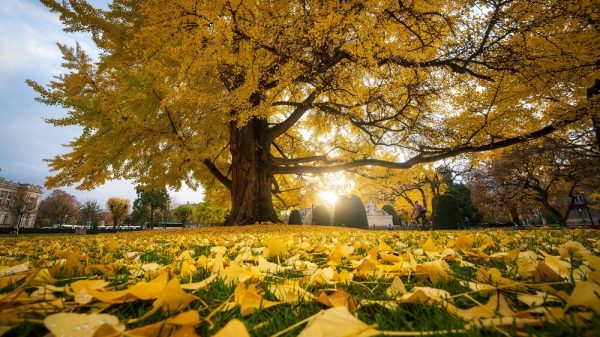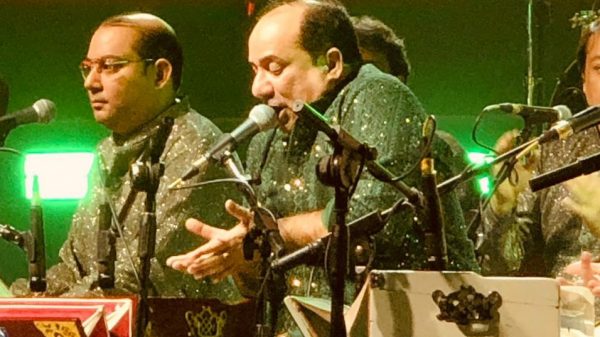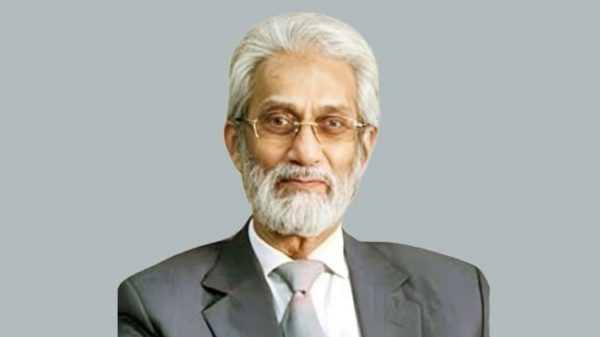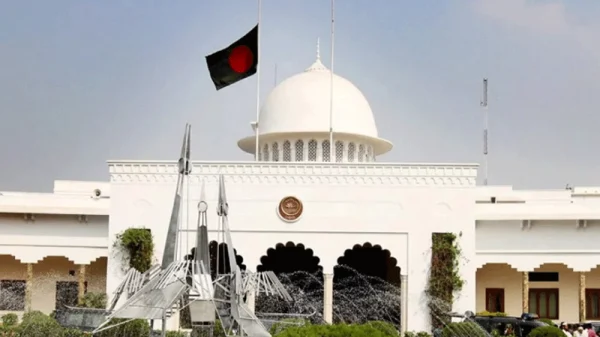Shawdesh Desk:
We are all familiar with the mad rush of people leaving Dhaka city on the eve of Eid. They take risks and trouble to reach home to enjoy the festival with their loved ones. Festivals are not solitary affairs. These are occasions for shared joy with family, friends, and even strangers.
In the book “Routledge Handbook of Festivals,” Dr Judith Mair suggests a quite comprehensive definition of a festival: “short-term, recurring, publicly accessible events that usually celebrate and/or perform particular elements of culture that are important to the place in which they are held or the communities which hold them; that provide opportunities for recreation and entertainment; and that give rise to feelings of belonging and sharing”.
This definition truly encompasses all aspects of a festival. Take, for example, Eid-ul-Fitr, it is short term – celebrated on one day, it is recurring – held every year, it is the biggest festival for Muslim communities around the world. It is celebrated with religious and cultural practices, including Eid prayers, visiting friends and relatives, sharing special food with family and guests, and enjoying various indoor and outdoor entertainments.
Major festivals like Christmas, Eid and Diwali, et cetera originated from religious faiths. The largest secular festivals are New Year festivals. Different nations and cultures have their own solar or lunar calendars and celebrate with festivity the first day of their calendar year. In our country, it is the “Pahela Boishakh” which we celebrate with colourful rallies, fairs, music, special food, and dress. In China, it is “Chunjie” which is celebrated for 15 days – the longest New Year celebration in the world.
The Gregorian calendar is used for practical purposes throughout the world and 1st January is celebrated as New Year’s Day with grand festivity everywhere. Thus, we celebrate New Year twice a year. We do not mind that because we love festivals and entertainment.
Entertainment is an important need in our lives. It gives us a break from everyday routine, monotony, and struggle; refreshing our minds and enhancing our mood. We love fun and leisure. Even in academic institutions, teachers who deliver lessons with fun and humour draw large attendance from students, and students actually learn more from such teachers.
These educators effectively turn education into entertainment. The way and method of entertainment varies from person to person, with culture playing a big role. One may find entertainment in solving complex mathematical problems, while another may find enjoyment in watching wrestling on TV. Ancient Romans found entertainment in watching gladiator fights.
However, many cool festivals around the world involve serene entertainment, as travel writer Kalya Ryan describes in her book, “Fifty Festivals to Blow Your Mind”. One such festival is the Floating Lantern Festival of Hawaii. It starts with the sound of blowing conch shells on Ala Moana beach where thousands of people gather to perform a few rituals and then float hundreds of candle-lit lanterns in the water at sunset.
Our ancient ancestors’ entertainment was probably centred on storytelling, as Dr Peter G Stromberg presumes in his article “Why Is Entertainment So Entertaining?,” published in Psychology Today. Wandering in the fictional reality created by the storyteller fetched great entertainment for the listeners. In our digital age, technology has brought out a huge range of incredibly attractive and enjoyable entertainment like virtual reality, laser shows, drone shows, etc.
The entertainment and amusements accompanying festivals vary with the economy, technology, and culture of nations or regions. However, the essence of festivals is the same everywhere: fostering togetherness and strengthening family and social bonds.
Festivals often transcend the barriers of race, religion, and culture and are celebrated by people across communities. For instance, according to Japan Info, published by the Consulate General of Japan in New York, Christmas is widely celebrated in Japan although the Christian population is less than 1% in the country. Besides their social significance, festivals hold great economic importance. They create a huge demand for goods and services related to decorations, clothing, food, and entertainment.
This, in turn, draws investment, generates employment, and boosts various associated business activities. According to Statista, US retail sales in the holiday season, encompassing three major festivals – Thanksgiving, Christmas, and the New Year – amounted to approximately US$ 929.5 billion in 2022.
This figure exceeded the 2022 GDP of many developed countries such as Switzerland, Norway, Sweden, and Denmark, as reported by the World Bank data. This single-country data perhaps effectively implies the economic value of festivals.
Festivals can be experienced differently by people depending on their financial ability. Wealthy people observe them with pomp and splendour. They eagerly wait and plan for these celebrations. On the other hand, the less fortunate members of society get concerned about how to manage the necessary elements of festivity.
The worries overshadow the eagerness. In the end, however, everyone finds a way to enjoy the festival, albeit to varying degrees. The spirit of celebration brings people together in unique ways regardless of their circumstances.
____________________________________________
The writer is a former Corporate Professional and Academic






























Leave a Reply